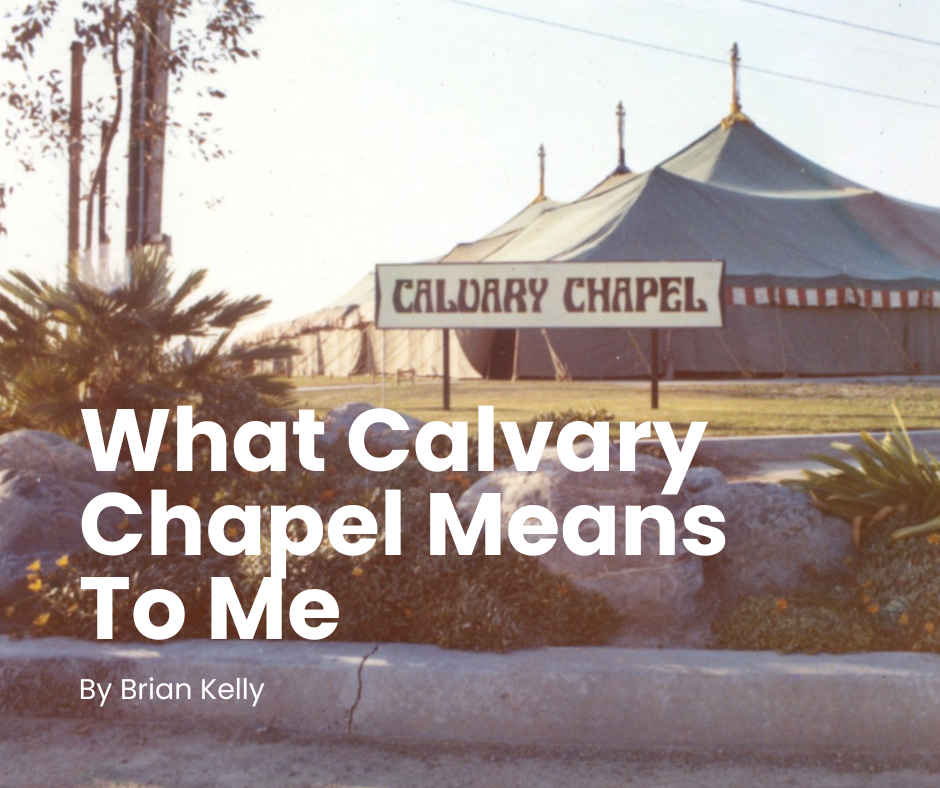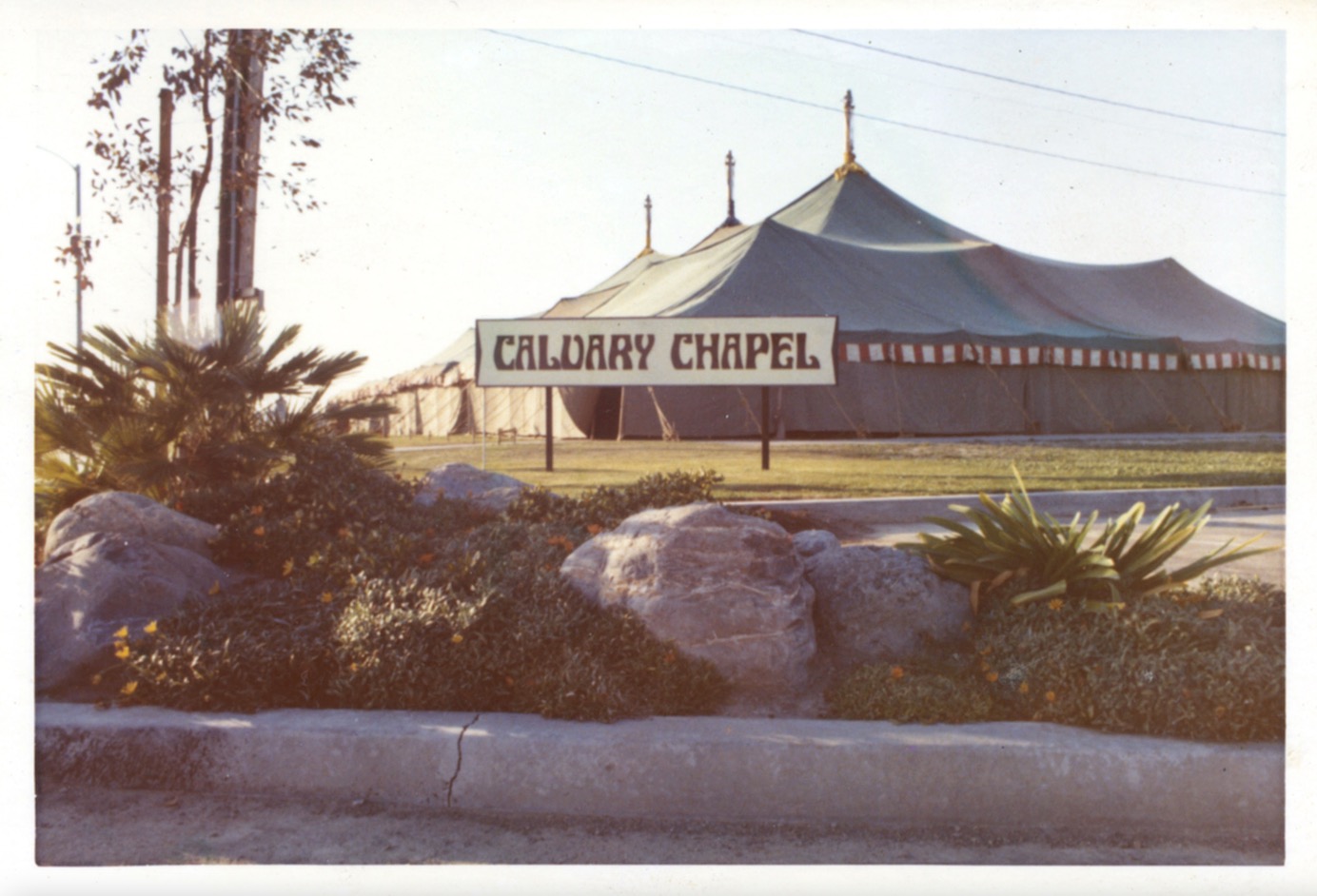
I grew up in the Church of Christ. My parents were saved when I was three years old, and we moved from San Luis Obispo, California, to the mountains of New Mexico. We started attending the Church of Christ in our town and were warmly welcomed into the congregation. This was the church that I grew up in. It wasn’t a large church, but it was full of friendly, caring families. They looked out for one another and tried to follow God the best they could. I have many fond memories of those early years at church, especially potluck Sunday, the last Sunday of every month. The casseroles were delicious.
These were good people, but I discovered that the church had some unique teachings and practices that made them different from other churches and denominations. They didn’t, for example, allow musical instruments in worship. They said that unless a person was baptized, they weren’t saved. They didn’t let women on the stage unless it was to help lead the kids out to class after the singing. There was also a hesitancy to recognize other denominations as “real” Christians. These things, I learned, were the teachings and practices that made that Church unique. As a child and later a teenager, I didn’t think too much of it. This must be what church is, I thought, because it was all that I knew. These were their distinctives.
Fast-forward to high school. I’d just graduated (barely), and my parents were frustrated with me—to say the least—frustrated about my bad decisions and immoral lifestyle. We still went to church every Sunday, but the sermons and studies were far from relevant to my life. I was disconnected and disinterested. Many of the church members loved me, and I knew that, but there was also a very strong sense of feeling like I was the outsider, the bad person, and the one who didn’t fit in. I’d bring my friends to church (misery loves company), but they were worse than me. Sadly, with a few exceptions, like our youth minister John (God bless him; he did the best he could), we didn’t feel welcome in this church anymore.
During my late teens, a man named Ben and his family came to plant a new church in town. He and my father quickly became friends. They were both ex-hippies and loved what we now call classic rock—it was a match made in heaven. They found connection and comradery in a small town where most people were either ranchers or hunters. The church they planted was called Calvary Chapel, and their goal was to “Simply teach the Bible simply.” My parents started attending this new church, and their lives were forever changed. There was something about the teaching that was unique. They’d never heard the verse-by-verse style before. The worship was different, too. It wasn’t Hillsong or anything, but at least they had a piano and guitar to add to the melody. And then there was the grace…there’s freedom in the grace of God!
After I graduated, Ben and my dad conspired to send me to Southern California. Through Ben’s contacts, they met with the head of construction for a large property in Murrieta that Calvary Chapel Costa Mesa had just purchased. There was an opportunity for me to get out of my small hometown and move to California. I could work in landscaping and help prepare the site that was to become the Calvary Chapel Conference Center, and later the new home of the Bible College. They even offered me room and board! Little did I know that I’d be surrounded by Christians night and day, and that my time there would eventually lead to my (re)conversion. The rest is history.
So, what does Calvary Chapel mean to me?
As I later discovered, Calvary Chapel has its own unique place in the Body of Christ. Its own distinctives. In fact, there was even a book written by its founder, Chuck Smith, called The Calvary Distinctives. I’m not going to go through the whole list of things that make Calvary Chapel what it is, but I would like to share the things that are special to me, and the things that I seek to replicate in every church and ministry I plant and pastor.
The Grace of God
Growing up in a somewhat legalistic church,[1] I know firsthand the difference between a works-based Christianity and a faith-based one. Legalism is menacing because even if you have all the right doctrine, you may still be guilty of a legalistic approach to ministry. It was a game changer when I first learned that God saves us and works in our lives by grace, through faith, and not by any works. Sadly, though this should be a staple of Calvary Chapel churches, many have left the grace of God and focus more on strict requirements to be accepted by the beloved. “Are you so foolish? Having begun in the Spirit, are you now being made perfect by the flesh?”[2]
The Word of God
One of the biggest bonuses of attending a Calvary Chapel is the emphasis on teaching the Bible. Paul said, “I have not shunned to declare to you the whole counsel of God.”[3] That’s what we do at Calvary week in and week out. This focus on teaching through books of the Bible is rare today. Churches are teaching topical messages and sermon series, but they don’t have a big commitment to expository teaching. At Calvary Chapel, we simply teach the word simply!
The Holy Spirit
When I first came back to Christ, I was very similar to the disciples in Acts chapter nineteen. Paul asked them, “Did you receive the Holy Spirit when you believed?” And they said, “No, we have not even heard that there is a Holy Spirit.”[4]That was me. I didn’t know very much about the Holy Spirit at all. Thankfully, though the ministry and gifts of the Holy Spirit can be a controversial topic, Calvary is committed to the leading, filling, and gifts of the Spirit today. Like my friend Bruce Zachary says in his book What We Believe And Why, “We need the Holy Spirit to empower us: It is the power of the Spirit through the Word which brings about true change in people.”[5]
The Importance of Balance
Are you a Calvinist or an Arminian? Do you believe in the Bible or the Holy Spirit? Are you more like a Baptist or a Pentecostal? Are you a once-saved-always-saved, or are you a lose-your-salvation? Do you believe in wearing suits to church, or are you a shorts and sandals guy? The list goes on. Chuck Smith said, “When the Bible speaks clearly, we must as well. But on other issues, we try to recognize the Scriptural validity of both sides of a debate and avoid excluding or favoring those in one camp over the other.”[6] I love the focus on balance within Calvary Chapel. We don’t draw hard lines on many issues and seek peace by providing a balanced view. Or at least we should.
The End Times
“Here, there, or in the air!” That’s what I heard one Calvary Chapel pastor say to another as they left the conference. The reference was to the Church’s rapture, and if I’d been ignorant about the Holy Spirit before Calvary, I was certainly way more in the dark about the end times. But Calvary Chapel taught me that Jesus is coming back soon. The Bible is full of prophecies and many haven’t yet been fulfilled. In fact, before the world completely crashes into chaos, “We who are alive and remain shall be caught up together with them in the clouds to meet the Lord in the air. And thus we shall always be with the Lord.”[7] The study of prophecy and the end times totally changed my perspective on the world. We’ve a job to do and limited time to do it in. I realized that by focusing on the imminent return of Christ as we do at Calvary Chapel, we become more intentional about reaching the lost for Jesus before that day comes.
The Love for Hippies
I think one of the biggest reasons I love Calvary Chapel is its warm and welcoming attitude toward the outcasts and rebels of its culture. This is how the Jesus Movement and Calvary Chapel started! “The hippies,” “the hippies.” All we used to hear about was the hippies. “They were so bad,” we were told. “They didn’t wear shoes,” “they used drugs,” and “they stank.” The hippies were a sexualized group of misfits and rabble-rousers. Yet, we at Calvary Chapel let them in. And we’re so proud of the fact that we let them in. We told them, “You can come in, and if we have to, we will tear out the carpet!”[8] Good job, us! But that was way back then in the sixties and seventies. I haven’t seen a hippie at Calvary Chapel in a long time. Where are they? What happened to all those hippies?
After they got saved, they became civilized and started megachurches.
Now it’s 2024, and we have a new set of “hippies.” They aren’t called hippies anymore, though. They’re called ________ (you fill in the blank; you know them). It’s the group of young people in our culture that are the sexualized misfits and rabble-rousers. They’re the ones that, if they were to come into church, they might be rejected by the righteous among us, just as they were back then. This is something for all of us Calvary Chapel people to hear, including myself. If we want to see our churches thrive, we must be willing to focus on the lost in this world. For God so loved the world that He gave his only Son. What was so great about Calvary Chapel back then (and what can make it great today) was that people were loved unconditionally, even those who weren’t easy to love.
Conclusion
That’s what made the difference for me. I was part of a church that said, “Clean up, and then you can come in.” However, Calvary Chapel said, “Come in, and Jesus Christ will clean you up.” This is what Calvary Chapel means to me, and I’m so excited to see what God does through our movement in the years to come!
References
[1] This is not meant to be a comparison with the church I grew up in, or against the Church of Christ in general. I just use my own experience as a frame of reference. I look back and appreciate many of the things about that church—the people most of all. That church recently left the Church of Christ and are now a growing community church. They even use instruments in worship! God is blessing them. I love visiting when I’m in New Mexico.
[2] Galatians 3:3
[3] Acts 20:27
[4] Acts 19:2
[5] Page 19, What We Believe And Why – https://calvarynexus.org/wp-content/uploads/2021/04/What-We-Believe-and-Why-Bruce-Zachary.pdf
[6] The Calvary Distinctives, Striking the Balance, Page 107
[7] 1 Thessalonians 4:17
[8] Chuck Smith famously said that when his board of elders said hippies couldn’t come to church because of the new carpet.







